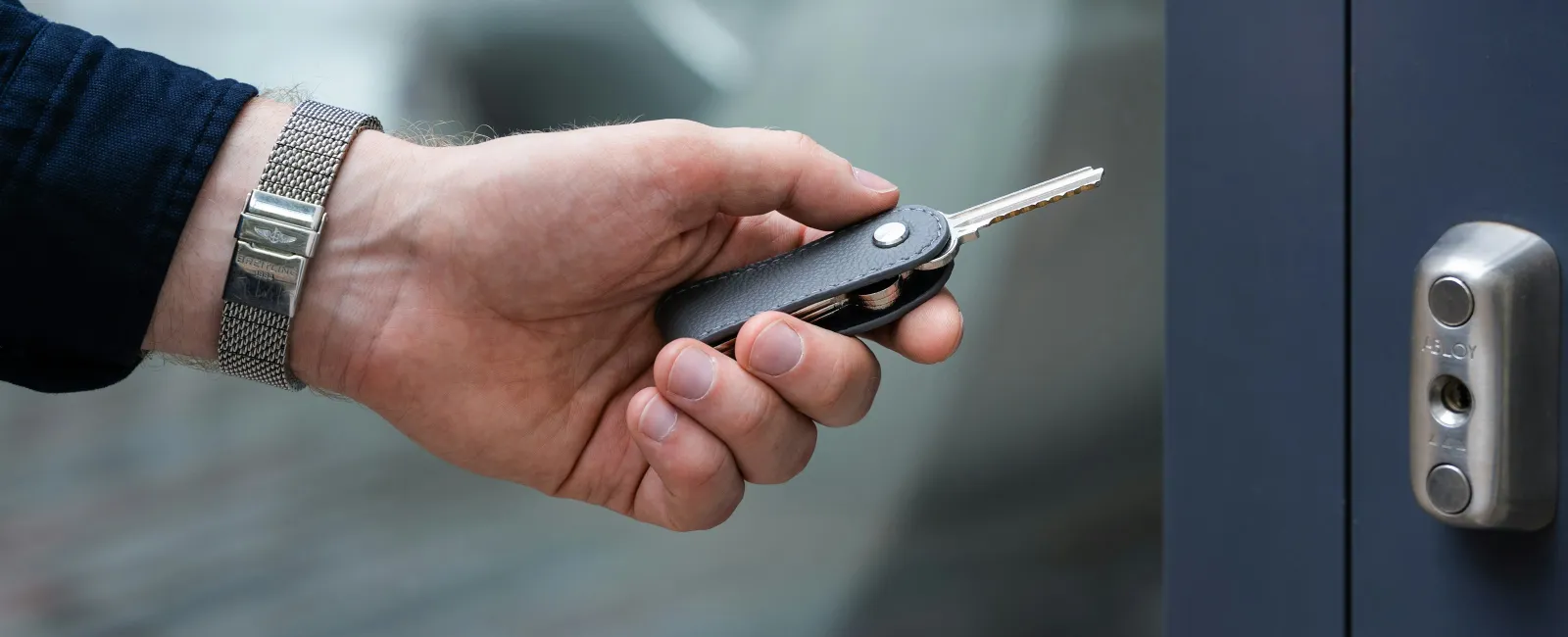April 27, 2024
A key fob is a small, handheld device commonly used for security purposes, particularly to control access to vehicles, buildings, and other secure areas.
They send a signal to a receiver, verifying the user's identity and granting access if the signal matches the information stored in the system. Key fobs improve security by reducing the risk of unauthorized access, as they are much harder to duplicate than traditional keys.
Functionality
A key fob typically uses wireless technologies such as radio frequency identification (RFID) or near-field communication (NFC) to interact with a corresponding receiver. When the fob is near the receiver or when a button on the fob is pressed, it sends a signal that can unlock doors, start vehicles, or trigger other security features.
Security Enhancements
Encryption and Rolling Codes
Modern key fobs use advanced encryption and rolling codes that change every time the fob is used. This makes it extremely difficult for potential intruders to copy or clone the signal, as the old codes almost become obsolete.
Convenience and Reduced Physical Contact
Key fobs offer a contactless way to access secure areas, which adds to physical security by reducing the chance of picking locks and minimizes wear and tear on physical mechanisms.
Customization and Control
Key fobs can be programmed to access specific areas at certain times. For businesses, this means controlling who has access to different parts of a building and at what time, enhancing overall security and operational efficiency.
Integration with Other Security Systems
Key fobs can be integrated with alarms, CCTV, and other electronic security systems, enhancing the overall security infrastructure. The system can trigger alarms and record the event if an unauthorized attempt is made.
Easy Deactivation
If a key fob is lost or stolen, it can be quickly deactivated, making it useless for anyone who might find or steal it. This is a significant security advantage over traditional keys, which would require rekeying locks.
Benefits of Installing Key Fobs
Installing key fobs for access control offers several benefits that enhance security, convenience, and efficiency for individuals and organizations. Here are some of the primary advantages:
Enhanced Security
- Encrypted Signals: Key fobs utilize encrypted communication, significantly reducing the risk of unauthorized access compared to traditional keys, which can be easily copied.
- Unique Identification: Each key fob can be uniquely programmed, making it easier to track who accesses certain areas and when, and providing clear audit trails.
Increased Convenience
- Contactless Entry: Users can unlock doors without physical contact, simply by having the fob near the reader. This is particularly useful for individuals carrying items or those with mobility issues.
- Easy Operation: Unlike traditional keys that require multiple copies for different locks, a single key fob can be programmed to access multiple doors or even different buildings.
Operational Efficiency
- Streamlined Access Management: Administrators can easily program, reprogram, or deactivate a key fob from a centralized system, which is much more efficient than changing locks or reissuing keys.
- Reduced Maintenance: Physical locks and keys wear out over time, but since key fobs are contactless, the wear and tear on the locking mechanism's physical components is significantly reduced.
Scalability
- Flexible Access Control: Key fobs can be programmed to provide tailored access to users based on time, day, or specific areas, ideal for businesses that must maintain strict security protocols.
- Easily Expandable: The system can be expanded by adding more doors or access points without significant infrastructure changes, and new key fobs can be issued as needed without substantial cost or delay.
Cost-Effective
- Reduced Rekeying Costs: Lost keys can pose a security risk in a traditional key system, often necessitating lock changes. With key fobs, lost or stolen fobs can be deactivated remotely without changing locks.
- Long-Term Savings: Although the initial setup for a key fob system might be higher than traditional locks, the long-term savings from reduced maintenance and rekeying costs can be significant.
